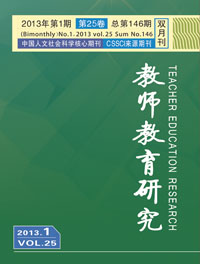英语词语正反、反正表达法比较杨 琼
英语词语正反、反正表达法比较
云南省广南县委党校 杨 琼
[Abstract] Both English and Chinese witness the practice of expressing a concept in a positive on negative way . In translating,therefore ,it is necessary to convert a positive English word or sentence into a negative Chinese version and vice versa . Based on the abundant, analyses of the relevant examples,the paper aims to sharper the English learners recognition in this aspect and therefore help them to achieve better performances in translation . Although it is not quite common,it is worthwhile to be studied and paid attention to because of its importance and difficulty . Therefore ,this paper attempts to discuss in detail the practice form three levels ,namely,words and phrases, simple sentences and complex sentences .
[Key words] negative,positive,expression,English,Chinese
英汉正反法,即英语正面表达,汉语反面翻译的方法。英汉反正法,指英语反面表达,汉语正面翻译的方法。所谓正面和反面表达主要是指在英语里是否用no, not或者带有de-,dis-,in-,un-, -less等词缀的词。在汉语里是否用“不”、“非”、“无”、“没(有)”、“末”、“否”等字。对这两种语言的正反和反正表达法进行比较,目的在于通过典型实例的分析,从中发现可以用来指导类似结构的词语、句子正确表达和进行有成效的翻译实践。当然,还有一定词语、句子形式上不具备正反(反正)的前后缀条件,但实际上也是属于这种结构范畴。反之,并非所有以上述前后缀为首尾的词都是反面表达的词,这方面也要加以注意。
英汉正反(反正)问题虽不多见,但重要而又颇感棘手,所以值得重视和研究。如下三个问题虽分别论述,但它们又是互相紧密联系的。
一、英汉词语正反、反正表达法比较
(一)常见的英语正面表达,汉译反面表达的词语
anxiety不安 miss没击中 beyond sb (某人)无权 ignorant无知
以上四个英语单词从结构上看不出反义,因为它们不带表示非正面词的前缀de-, dis-, in-, un-, 后缀-less等词。但汉译时则含反面意义“不”、“无”、“没”等词,属英语为正面意义词,汉语为反面表达词。
Absence of mind 心不在焉 mortally il1不治之症 seize the opportune moment不失时机 abstain from不应该
上面的英语短语中,都不含反面意义的前后缀,汉译时都带有“不”的反面意义。因此,英语为正面意义短语,汉语为反面表达词语。
(二)常见的英语反面表达,汉译正面表达的词语
defrost 解冻 discover发现 immortal流芳百世的 inaction懒散 unclose打开
以上英语单词分别含有表示反面意义的前级de-, dis-, im-,in-, un-,因此它们都属反面表达的词,但汉译时都不见“不”、“没"等反面意义的词语。所以,英语为反面表达,汉译为正面表达。另外,英语中还有不少词,翻译时,有时似乎从正面表达和从反面表达都行得通,如correct可译为“正确”(正面表达),又可译为“没有毛病”(反面),译者应根据上下文选用一种更能表达原文思想内容的说法。
二、英汉简单句正反、反正表达法比较
(一) 英语从正面表达,译文从反面表达的词语和句子
1. The new general manger is ignorant of conditions at the lower levels .
新来的总经理不了解下情。
2. But that’s very extraordinary. It seems against nature. 不过这种事情很特殊,似乎不符合自然规律。
3. We may safely say so.
我们这样说,万无一失。(或:错不了)
4. Such a chance was denied me .
我没有得到这样一个机会。
上述句子概属简单句,每句从词的结构上看,都没有含反面表达意义的前后缀,故把它们归入正面表达的词语。但汉译时,划横线的词分别含反面表达的“不”、“没有"等意义。
(二)英语反面表达,汉译正面表达的词语和句子
英语中有些作反面表达的词在译文中往往可以从正面表达,这并不困难。如demobilize 复员; unfasten 解开 ; displease 使人生气。
1.“Don’t unstring your shoes . Roody”, she said .
她说:“把鞋带系上,罗比”。
2. Miss Martha is writing her thesis with breathless attention .
玛丽小姐正全神贯注地写学位论文.
3. Generally she accepted the family life in all its
crowed inadequacy.
在通常情况下,她还是能够忍受她那拥挤寒怆的家庭生活的。
4. I rode around with him one day seeing how the ships
unloaded.
一天,我和他乘车转了转,看看船如何卸货。
再参看一个对话:
-You don't smoke . I suppose.
-你不抽烟吧?
-No .I don’t
是的,我不抽烟。
No属反面表达的词,此处汉译则为正面表达,英汉两种语言比较而反映出来的这种yes ,no的特殊现象,值得注意。
三、英汉复杂句正反、反正表达法比较
(一)英语正面表达,汉译反面表达的短语和句子
1. It had been six or seven hours since I had had anything to eat,drink or smoke .
我没有吃,没有喝,没有烟抽已经六、七个小时了。
2. Haste makes waste.
欲速则不达。
3. He said:“Be careful ! Mind my right arm !”
他说:“当心!不要碰着我的右臂!”
4. As was expected, the enemy walked right into the trap.
不出所料,敌人果然自投罗网。
(二)英语反面表达,汉译正面表达的短语和句子
1. His spies were not going to lose sight of me .
他的密探一直在监视我的行踪。
2. The examination left no doubt that the patient had
had died of cancer .
调查结果清清楚楚说明,病人死于癌症。
2. Students, with no exception, are to hand in their papers
this afternoon .
今天下午学生统统要交作业。
4. Don’t lose time in posting this letter.
赶快把这封信寄出去。
本文开头提到,有些词语、句子形式上不具备反面表达的前后缀等条件,但属于反面表达结构。但也要注意,并非所有具备反面表达的前后缀词语都是反面表达的词语,如irrigable (可灌溉的),immediately (马上)两词,ir-, im-并不使rigable和mediately具有新的词义,故不算为反面表达词。另一方面,也要注意反面表达的词语,并不一定非按正面表达汉译不可。例如:
Mark is an insignificant person in the company . [反]
马克在公司里是个小人物。[正]
马克在公司里是个无关紧要的人物。[反]
总之,应该承认,英语反面表达、汉译正面表达;英语正面表达、汉译反面表达的译技是值得注意的。
参考文献:
张培基、喻云根、李宗杰、彭漠禹《英汉翻译教程》“正反、反正表达法”有关文章(上海外语出版社2001年7月)



